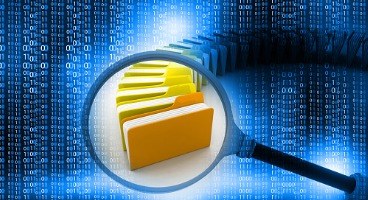Where to Start?We began our journey into Intelligent Document Processing with a large healthcare contract 8 years ago. The challenge was to …


In my blog ‘How Would You Like To Pay For That?’, I touched on Open Banking, so I want to take a deeper look at how it is transforming the payments market and how it will develop in the B2B space.
As a brief overview for the uninitiated, Open Banking is a system whereby banks allow third parties to access their customer’s data (personal or business banking). This transparency allows the third party to develop new apps and services for payments, which already extends to credit checks for rental properties. Another example is some airlines will soon allow Open Banking to pay for airline tickets direct without having to use debit or credit card facilities.
This API technology and financial transparency with little to no friction provides a multitude of benefits to B2B payments sector. Payment providers can automatically access payment data to transfer funds between banks, without having to build custom software for each bank with whom they connect. This will allow enterprise and corporate accounting to automatically access bank information rather than rely on outdated and unsecure practices such as screen scraping.
It’s safe to say that when Open Banking first launched its focus was on the benefits for retail only. People did not think it would create such a large change in the payments space. It’s safe to say, that perception has now changed and as a result, there is a multitude of Fintech start-ups who have launched explicitly in the B2B payment handling and merchant provider space. We are currently working with several FinTech providers in this arena, assisting with the tech for their middle and back office for institutional onboarding, as well as case management.
Open Bankings data sharing benefits, are a natural fit for B2B payments – allowing for the ability to accelerate data collection and provide aggregated analytics and trends. The simple ability allowing for aggregated bank account data into a single accounting portal, enabling automated reconciliation of the full data set rather than one by one, can save a large enterprise several weeks’ worth of manual work processes. That is a lot of time and money saved which is all FD’s and CFOs are going to gravitate towards.
Payment processing and invoicing can all be handled through Open Banking, creating a much simpler, cleaner approach, providing the ability for accounting platforms to accelerate payments and acceptance capabilities. This, in turn, can reduce payment processing fees to nearly zero, removing card processing transaction fees.
A good example of the expanding options is ClearBank in the UK. They have introduced multicurrency bank accounts for businesses to move funds based on foreign exchange prices, in real-time, which will improve cash flow and give greater visibility and control over the FX pricing to businesses.
In 2019, the FCA implemented the Open Banking directive but went a step further by issuing a rule set regarding API security, messaging, and dispute management processing. These further requirements mean that middle and back-office automation, compliance, and case management with periodic review capability, are key for all B2B providers. The tech that sits behind their solutions must meet these requirements which, whilst complex can be implemented effectively within 90 days from concept to go live.
Look out for my upcoming blog ‘We Use Automation For That’, where I will look at this concept in more detail.
Insights
Business improvement through automation is a strategic investment. So it comes as no surprise, we often get asked what is best practice …
How Would You Like To Pay For That?
As we have all seen, there is somewhat of a revolution happening in the payments market globally. In 2020, the payments gateway …

Battle Of The Banks
It’s safe to say that Neobanks are winning the “Hearts and Minds” campaign with their users having the deep-seated roots of wanting to challenge and move away from traditional banks.
Digital Banks, Neobanks and “digital disruptors” have already started cutting into the revenues of the traditional and financial markets and institutions.



